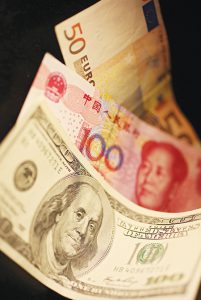When Marc Andreessen and Ben Horowitz’s startup LoudCloud clinched a fundraising round at an $820 million valuation even as the dotcom boom unraveled in 2000, management expected cheers from staff. Instead, the first question was: “Why didn’t we get a $1 billion valuation?â€
Unicorn envy — the quest for those nine zeroes that grab headlines and open wallets — has only snowballed since. A decade of cheap money flowing into wannabe Amazon’s and Google’s led to February’s record of 1,000 billion-dollar-plus private companies worldwide, collectively worth $3.3 trillion, according to CBInsights. Counting unicorns has become a metric of national success: French President Emmanuel Macron targeted 25 unicorns by 2025, and got there three years early.
The obsession does have downsides. The race to burn cash and grow at all costs made losing money almost fashionable — think WeWork Inc. Only 22% of 2020’s technology initial public offering had profits. As for tech’s problem-solving potential, there seem to be a lot more digital butlers and crypto apps in the venture-capital forest than vaccine makers.
It’s perhaps welcome, then, that the unicorn-hype bubble is meeting its match: The end of cheap money in
a post-pandemic, war-torn world. Like the financial equivalent of a blizzard, tumbling stock markets and rising interest rates have venture capitalists heading for shelter.
European VC funding has fallen 50% between the first and second quarter of this year, to $6.1 billion, according to GPBullhound. Lower growth and less optimism mean startups that could once count on a Tiger Global to aggressively back nose-bleed valuations are being told to cut costs and save cash. More than 21,000 US tech workers have been laid off this year, according to Crunchbase.
There’s still a fair amount of long-term optimism. Martin Mignot of Index Ventures notes that tech has survived past downturns like the dotcom bust and the financial crisis. But with expectations of a funding winter lasting 18-24 months, startups’ ability to generate cash is becoming paramount. “There will be a flight to quality,†says Mignot.
Maybe it’s time to hunt a new animal more in tune with the times: the centaur. Defined as a startup with $100 million in annual recurring revenue — a common metric in cloud-based services — it’s being held up as the new anti-unicorn by Bessemer Venture Partners. There are only 150 centaurs worldwide in the cloud industry. But with more paying customers, more staff and a more established product-market fit, they’re less likely to disappear to zero when the founder’s charisma fades.
Whatever the buzzword, the underlying ingredients of this shift look healthier than what we’ve been fed in the past. Startups have been taught to view funding like a tray of cocktail sausages at a party: The waiter may never come back, so grab as much as you can.
Plentiful capital fed unicorns’ “blitzscaling†trend of burning cash to knock out the competition and justify their own lofty valuations. That will be harder to achieve in today’s world, and maybe that’s just as well if it leads to fewer firms dependent on outside cash to plug losses.
For consumer-focused companies, raising prices after years of chasing growth isn’t going to be so easy in a time of high inflation, as Netflix Inc or food-delivery startup Gorillas has learned. The cost of acquiring customers looks to have become unsustainable in some sectors, says Partech’s Reza Malekzadeh.
—Bloomberg
 The Gulf Time Newspaper One of the finest business newspapers in the UAE brought to you by our professional writers and editors.
The Gulf Time Newspaper One of the finest business newspapers in the UAE brought to you by our professional writers and editors.
